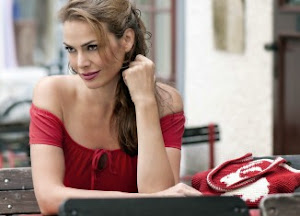At dawn on the 13th the Carnatic entered the port of Yokohama. This is an important port of call in the Pacific, where all the mail-steamers, and those carrying travellers between North America, China, Japan, and the Oriental islands put in. It is situated in the bay of Yeddo, and at but a short distance from that second capital of the Japanese Empire, and the residence of the Tycoon, the civil Emperor, before the Mikado, the spiritual Emperor, absorbed his office in his own. The Carnatic anchored at the quay near the custom-house, in the midst of a crowd of ships bearing the flags of all nations.
Passepartout went timidly ashore on this so curious territory of the Sons of the Sun. He had nothing better to do than, taking chance for his guide, to wander aimlessly through the streets of Yokohama. He found himself at first in a thoroughly European quarter, the houses having low fronts, and being adorned with verandas, beneath which he caught glimpses of neat peristyles. This quarter occupied, with its streets, squares, docks, and warehouses, all the space between the "promontory of the Treaty" and the river. Here, as at Hong Kong and Calcutta, were mixed crowds of all races, Americans and English, Chinamen and Dutchmen, mostly merchants ready to buy or sell anything. The Frenchman felt himself as much alone among them as if he had dropped down in the midst of Hottentots.
He had, at least, one resource to call on the French and English consuls at Yokohama for assistance. But he shrank from telling the story of his adventures, intimately connected as it was with that of his master; and, before doing so, he determined to exhaust all other means of aid. As chance did not favour him in the European quarter, he penetrated that inhabited by the native Japanese, determined, if necessary, to push on to Yeddo.
The Japanese quarter of Yokohama is called Benten, after the goddess of the sea, who is worshipped on the islands round about. There Passepartout beheld beautiful fir and cedar groves, sacred gates of a singular architecture, bridges half hid in the midst of bamboos and reeds, temples shaded by immense cedar-trees, holy retreats where were sheltered Buddhist priests and sectaries of Confucius, and interminable streets, where a perfect harvest of rose-tinted and red-cheeked children, who looked as if they had been cut out of Japanese screens, and who were playing in the midst of short-legged poodles and yellowish cats, might have been gathered.
The streets were crowded with people. Priests were passing in processions, beating their dreary tambourines; police and custom-house officers with pointed hats encrusted with lac and carrying two sabres hung to their waists; soldiers, clad in blue cotton with white stripes, and bearing guns; the Mikado's guards, enveloped in silken doubles, hauberks and coats of mail; and numbers of military folk of all ranks—for the military profession is as much respected in Japan as it is despised in China—went hither and thither in groups and pairs. Passepartout saw, too, begging friars, long-robed pilgrims, and simple civilians, with their warped and jet-black hair, big heads, long busts, slender legs, short stature, and complexions varying from copper-colour to a dead white, but never yellow, like the Chinese, from whom the Japanese widely differ. He did not fail to observe the curious equipages—carriages and palanquins, barrows supplied with sails, and litters made of bamboo; nor the women—whom he thought not especially handsome—who took little steps with their little feet, whereon they wore canvas shoes, straw sandals, and clogs of worked wood, and who displayed tight-looking eyes, flat chests, teeth fashionably blackened, and gowns crossed with silken scarfs, tied in an enormous knot behind an ornament which the modern Parisian ladies seem to have borrowed from the dames of Japan.
Passepartout wandered for several hours in the midst of this motley crowd, looking in at the windows of the rich and curious shops, the jewellery establishments glittering with quaint Japanese ornaments, the restaurants decked with streamers and banners, the tea-houses, where the odorous beverage was being drunk with saki, a liquor concocted from the fermentation of rice, and the comfortable smoking-houses, where they were puffing, not opium, which is almost unknown in Japan, but a very fine, stringy tobacco. He went on till he found himself in the fields, in the midst of vast rice plantations. There he saw dazzling camellias expanding themselves, with flowers which were giving forth their last colours and perfumes, not on bushes, but on trees, and within bamboo enclosures, cherry, plum, and apple trees, which the Japanese cultivate rather for their blossoms than their fruit, and which queerly-fashioned, grinning scarecrows protected from the sparrows, pigeons, ravens, and other voracious birds. On the branches of the cedars were perched large eagles; amid the foliage of the weeping willows were herons, solemnly standing on one leg; and on every hand were crows, ducks, hawks, wild birds, and a multitude of cranes, which the Japanese consider sacred, and which to their minds symbolise long life and prosperity.

























